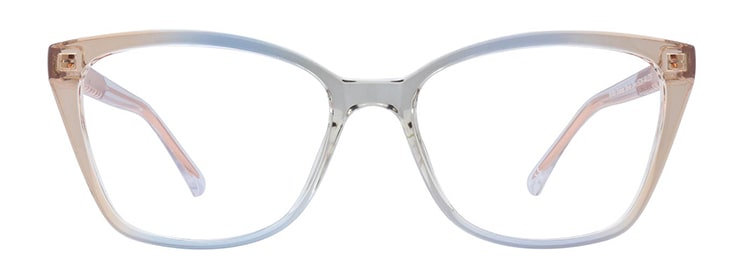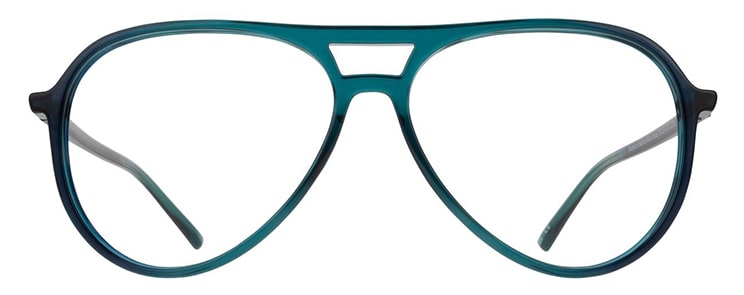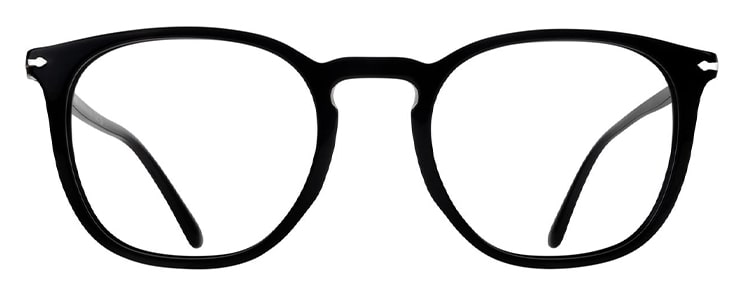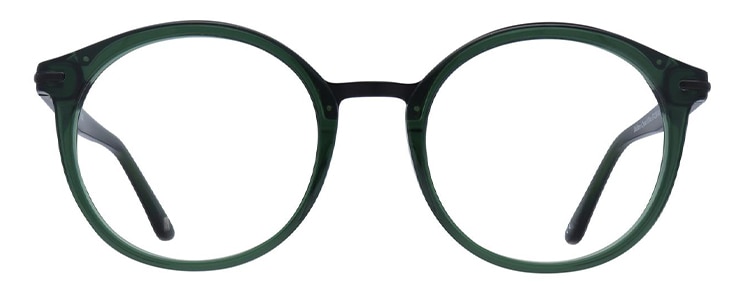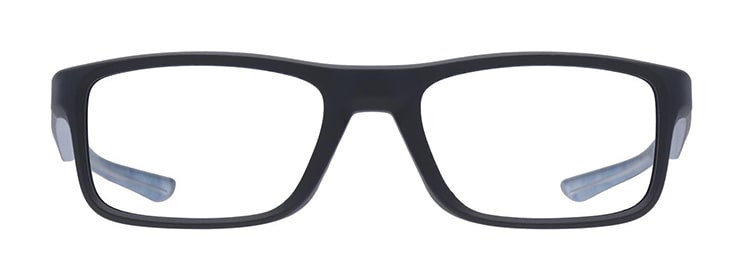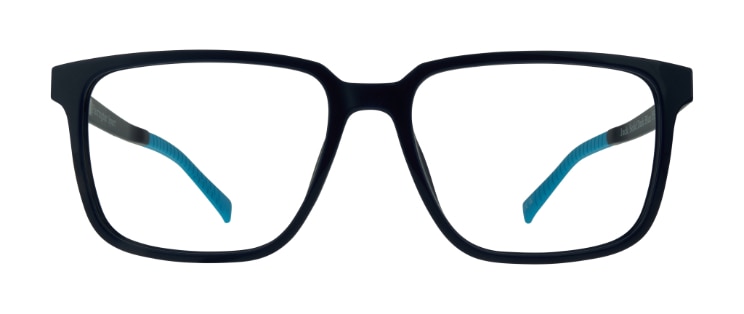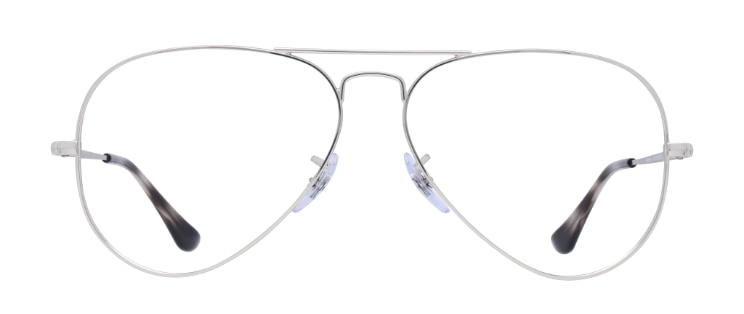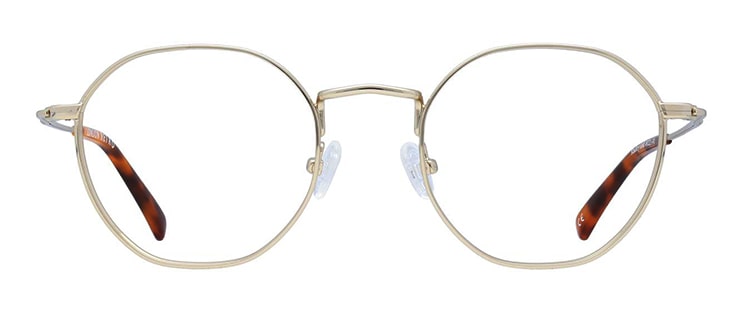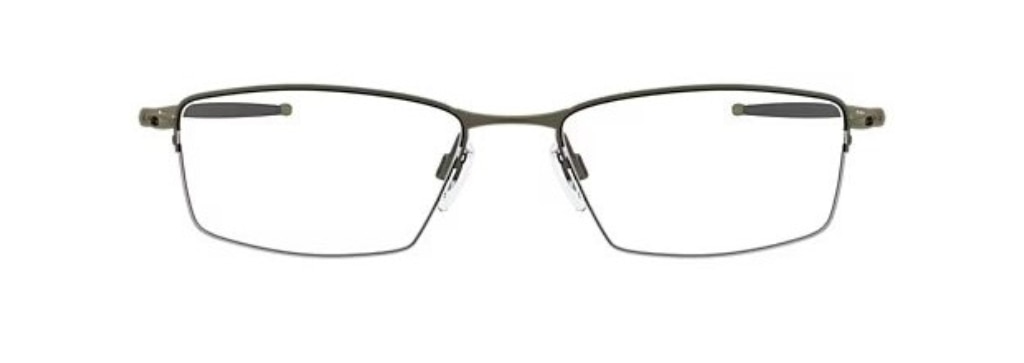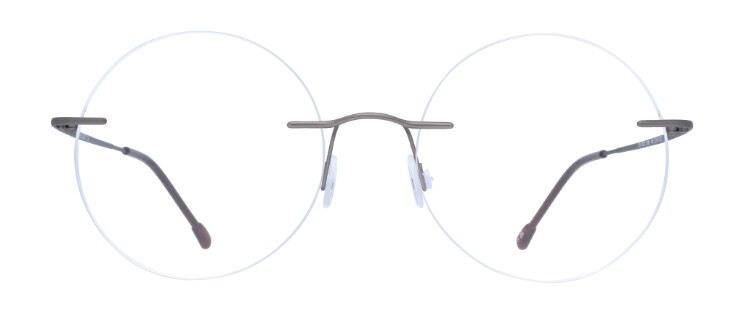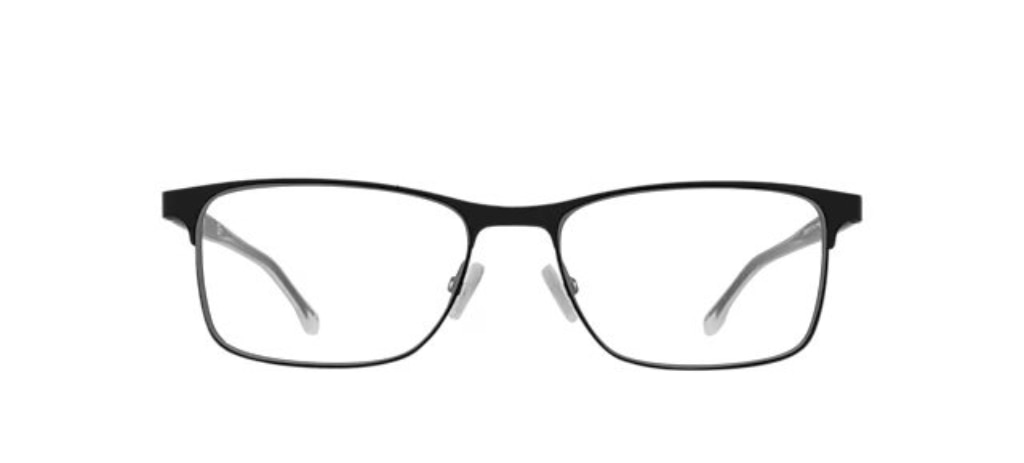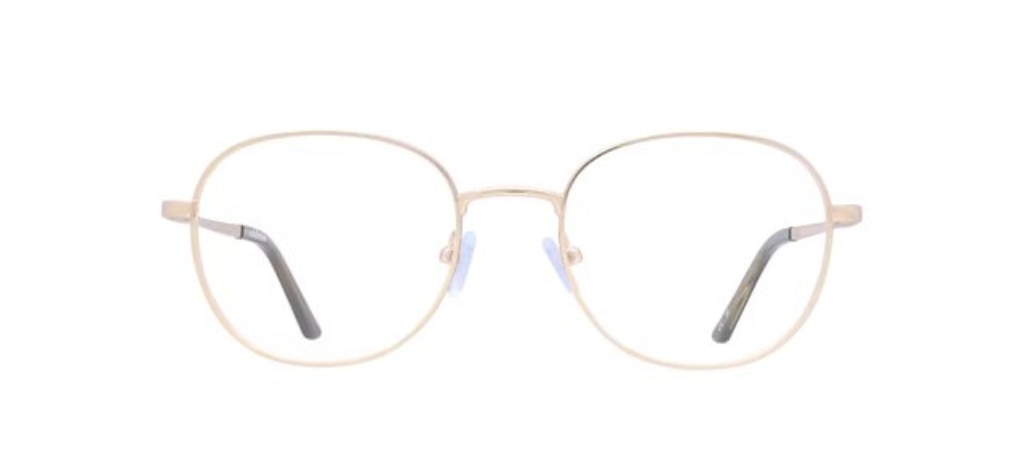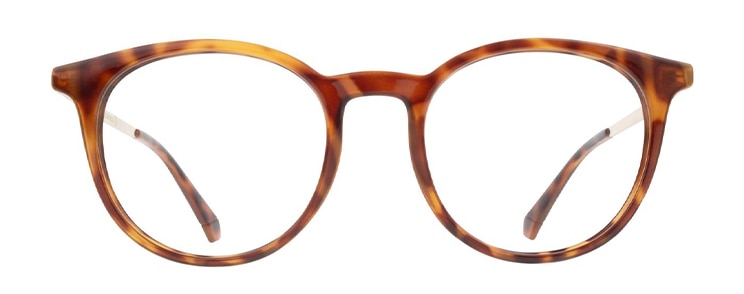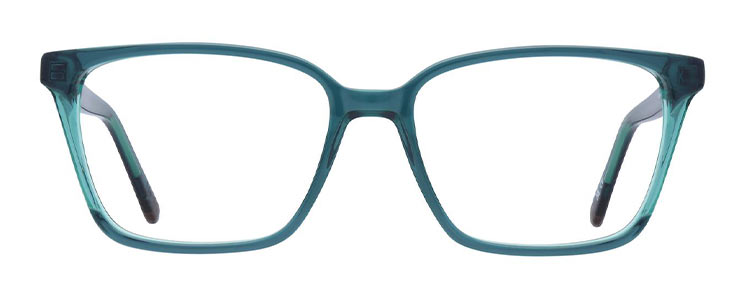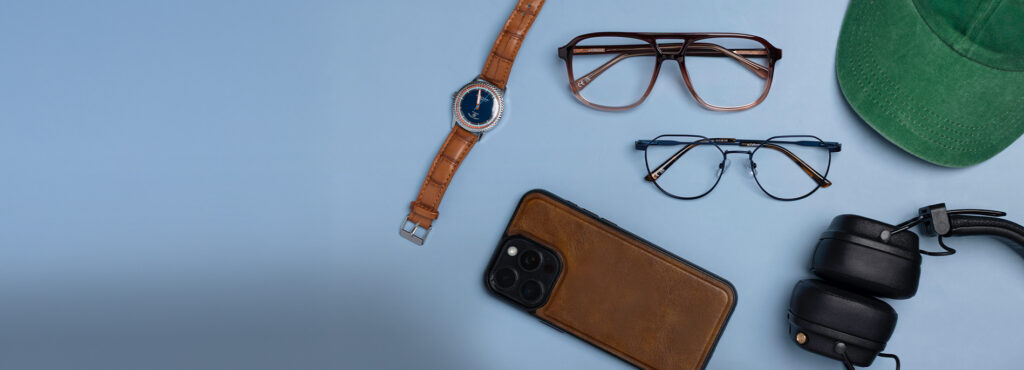When it comes to choosing new prescription glasses online, most people focus on style and fit, but the material your frames are made from can be just as important. From durability to comfort and sustainability, the frame materials for glasses affect everything from how they feel and fit to their functionality in your everyday life.
In this guide, we break down the most popular eyewear materials—from acetate glasses frames to eco-friendly styles—to help you make the best choice for your needs.

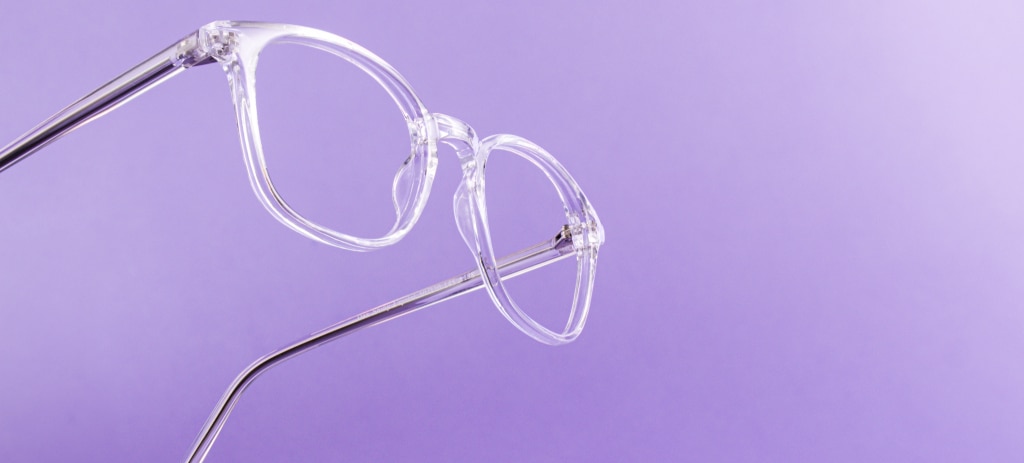
Plastic: affordable and versatile
Plastic glasses frames are stylish and affordable. They are usually made from polyamide, Optyl, nylon, SPX or carbon. These plastic materials offer comfort and durability at a typically lower price than premium metal or acetate options.
Pros:
- Budget-friendly: Plastic frames are ideal for fashion lovers who want to switch up their style often without breaking the bank. They also make ideal reading glasses.
- Bold designs: Available in a wide range of colours, thicknesses and silhouettes, from experimental to traditional, providing plenty of options for different styles and face shapes.
- Lightweight: Plastic frames often feel light on the face.
Cons:
- Less breathable: Can feel tighter on the face compared to acetate or metal. Top tip: look for designs with flexible spring hinges for a more comfortable, secure fit.
- Can degrade over time: Plastic frames, especially cheap ones, can become brittle and their glossy appearance can fade over time. They can also be much more susceptible to breakage, so it’s important that you take good care of them.
Popular plastic frames:


Acetate: the style-focused favourite
Acetate is a popular material for eyewear frames. It first appeared in glasses manufacturing in the late 1940s as an evolution from earlier fragile plastics. Acetate is now one of the most popular frame materials, known for being lightweight, sturdy and available in a wide range of colours and finishes.
Pros:
- Vibrant colours and patterns: Acetate can be layered and polished to create bold patterns and rich hues, from tortoiseshell to transparent and pastel tones.
- Durable and versatile: Acetate is a high-quality, sturdy material that can be formed into a huge variety of shapes for the ultimate versatility.
- Comfortable, lightweight eyewear option: Despite their sturdy appearance, acetate frames are surprisingly light and easy to wear.
- Suitable for sensitive skin: Cellulose acetate, also known as zyl, is a hypoallergenic material suitable for people with metal allergies.
- Eco-friendlier option: Derived from natural sources like cotton and wood pulp, cellulose acetate is more sustainable than plastic-based alternatives.
Cons:
- Heat sensitive: Exposure to high temperatures may warp the shape of some acetate materials, so avoid leaving them in a hot car! Note, however, that we have a wide selection of acetate frames which are reinforced with a wire core for enhanced strength and durability, helping them to keep their original shape.
- Less flexible: Acetate frames have fixed nose pads which some wearers with specific facial features find uncomfortable. Although, sports glasses made of acetate materials do tend to have sculpted nose pads for a more bespoke and reliable fit.
Popular acetate frames:

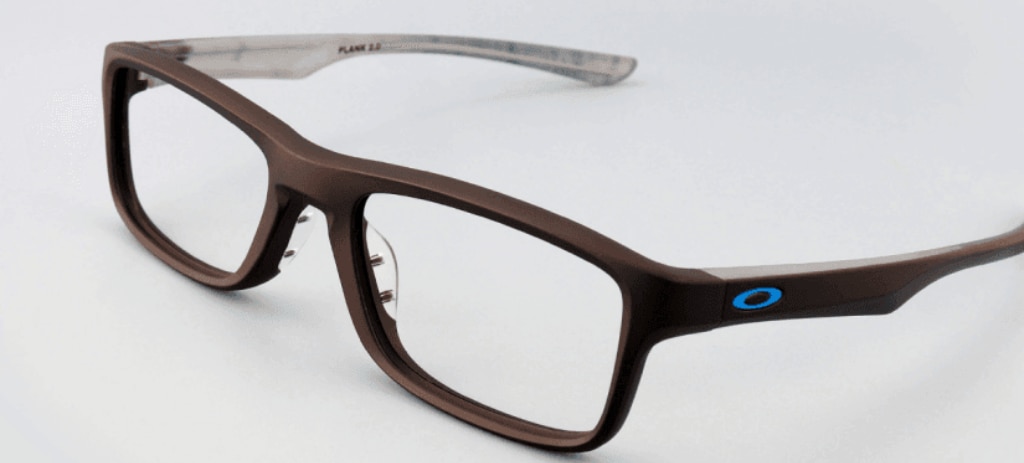
Nylon: flexible and lightweight
Nylon is a popular type of material for sports and performance eyewear thanks to its exceptional flexibility. Originally introduced in the mid-20th century, nylon frames are ideal for active lifestyles. Consider Oakley’s O-Matter™ material, a nylon-based composite known for its exceptional durability and flexibility. A great alternative to acetate for sports enthusiasts.
Pros:
- Lightweight and flexible: Nylon glasses are light as a feather and provide all-day comfort.
- Durable and tough: Perfect for sports and staying active.
- Resistant to heat and cold: They maintain their shape in various conditions.
- Available in a variety of colours: Plenty of stylish options for you to choose from.
Cons:
- Limited adjustability: This can make fine-tuning the fit more difficult.
- Can feel too rigid: Some wearers find the robustness makes the frames feel too stiff.
Popular nylon frames:

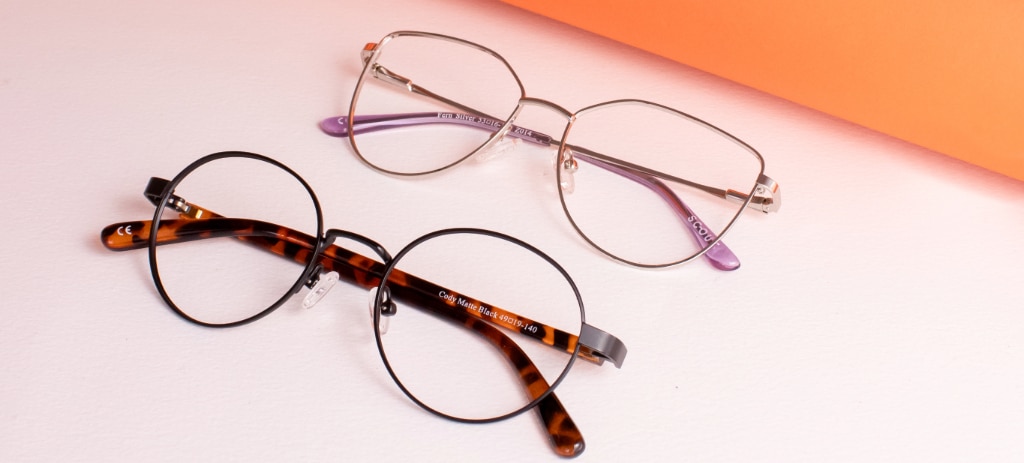
Metal: Sturdy and sophisticated
The oldest type of glasses material, around since the 19th Century, metal glasses are typically made of stainless steel, titanium, aluminium and nickel alloys. They are a practical and stylish choice for everyday wear.
Pros:
- Durability and strength: Metal frames, especially stainless steel or titanium, are known for their resilience and structural strength.
- Minimalist aesthetic: As they are often thinner and more refined than plastic, metal glasses frames are perfect for those who prefer a sleek, professional look.
- Adjustable fit: Metal eyeglass frames have adjustable nose pads that can be tweaked for a tailored, comfortable fit.
- Lightweight: Many metal frames are extremely lightweight, providing all-day comfort without bulk.
- Long lifespan: Though thinner, metal frames generally maintain their shape and functionality longer than plastic when properly handled.
Cons:
- Allergy concerns: Some alloys contain nickel, which may cause irritation for sensitive skin—look for hypoallergenic titanium or stainless-steel options.
- Temperature sensitive: Metal can feel cold in winter or hot in summer.
Popular metal frames:


Titanium: the premium performer
Titanium glasses frames gained popularity in the 1980s, valued for their exceptional strength-to-weight ratio and sleek design. Made from pure titanium or titanium alloys, their robustness and refined finish make them a premium choice for both fashion and function.
Pros:
- Ultra-lightweight and very strong: Titanium frames are the best lightweight glasses you can find on the market. They provide all-day comfort without compromising on durability.
- Corrosion-resistant and sturdy: Titanium frames are hard-wearing, resistant to damage from perspiration and salt water. This makes them great for active lifestyles.
- Hypoallergenic: Designed for sensitive skin and individuals that experience allergic reactions to metal.
- Sleek profile: Often used in minimalist, high-end designs like Oakley and also our own exclusive Finelight rimless range.
Cons:
- Higher cost: Titanium frames often come at a higher price due to the expert craftsmanship, longevity and performance of the material. Arguably, however, it’s beneficial to you in the long-term, especially if you use your glasses on a regular basis.
- Restricted style range: Since titanium frames are often found in simpler, classic designs, some wearers find the options quite limited.
Popular titanium frames:

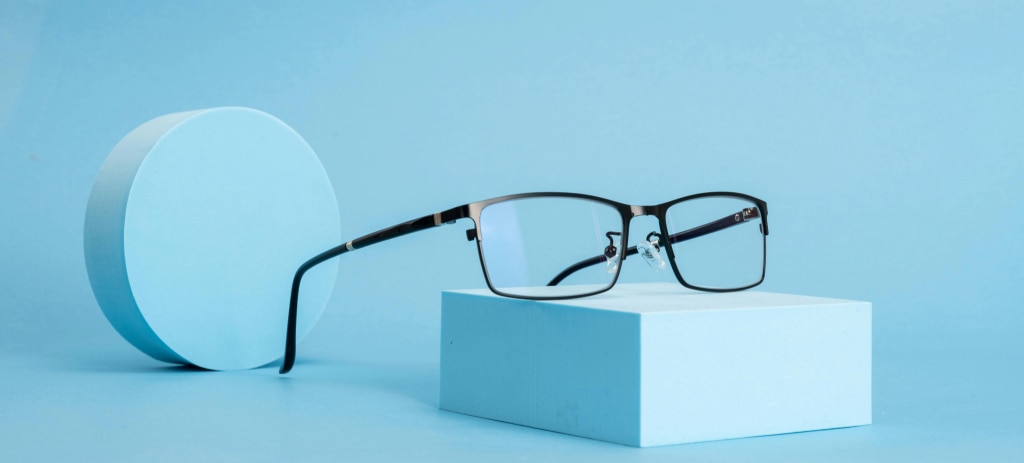
Stainless steel: sleek and resilient
Widely used in eyewear design from the mid-20th century, stainless steel offers a lightweight yet hard-wearing structure that resists tarnish and wear. Glasses made from this reliable material have a sleek and minimalist appeal that makes them a popular choice for modern, understated frames.
Pros:
- Sturdy and resistant to corrosion: Stainless steel frames are impact-resistant and sturdy, designed to last.
- Robust yet lightweight: Sturdy but with a streamlined appearance and ultra-light feel.
- Hypoallergenic eyewear choice: Stainless steel glasses minimise irritation for those with metal allergies.
- Budget-friendly: Stainless steel offers a more affordable alternative to materials like titanium, making it a smart choice for cost-conscious shoppers who still want quality and style.
Cons:
- Weight: Can feel slightly heavier than titanium frames.
- Less flexible: Some wearers find stainless-steel frames too rigid with reduced flexibility compared to other designs.
Popular stainless-steel frames:

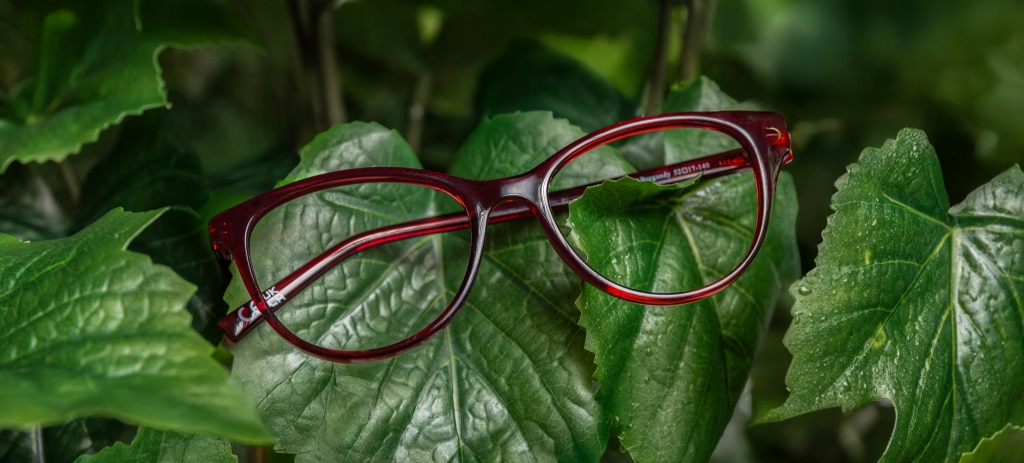
Eco-friendly materials: the sustainable choice
Eco-friendly and responsibly made glasses began gaining traction in the early 2000s, as sustainability became a focus in fashion and design. These frames are typically made from materials like recycled metals, bio-acetate, wood and bio-nylon. Unlike acetate materials which although come from natural sources, can take hundreds of years to break down, eco-friendly frames offer a stylish and sustainable eyewear option for eco-conscious wearers keen to reduce their impact on the environment.
Pros:
- Eco-friendly appeal: Frames like our eco-friendly Arden range and bio-nylon frames are made responsibly. Glasses crafted from sustainable and recyclable materials help reduce the environmental impact.
- Unique aesthetic: Often hand-finished, these frames offer a one-of-a-kind texture and style.
- Eco-consciousness: Choosing sustainable options supports more responsible and ethical practices in manufacturing.
Cons:
- Limited range: While we’re currently expanding our sustainable eyewear ranges, we appreciate there might not be as many style options available compared to other collections on our site. But keep your eyes peeled, there’s plenty more to come!
- Water sensitivity: Some natural materials may need extra care in wet or humid conditions. Although, at Glasses Direct all of our designs are made to the highest quality and with maximum attention to detail.
Popular eco-friendly frames:

Which frame material is right for you?
Consider your lifestyle, budget, skin sensitivity, and personal style when deciding on types of frames you want. If you’re fashion-forward and eco-conscious, acetate or recycled materials might be your match. Prefer something low-maintenance, sturdy and minimalistic? Try a pair of glasses made from titanium or stainless steel.
Ready to find your perfect pair? Browse our new arrivals, featuring a wide range of styles in all the different materials mentioned above.


